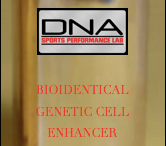ConsumerLab reveals holes in HGH marketing
on the Internet to decrease the effects of aging, finds they
generally have little evidence to back up their claims and urges
consumers to be wary of false claims.
HGH is an approved prescription medicine for treating childhood growth failure. Its potential as an anti-aging drug for adults was reported in a 1990 issue of the New England Journal of Medicine and although later studies tempered the original findings, the samll study (not placebo controlled), spurred the marketing of several types of non-prescription supplements purported to have HGH-like effects.
Common claims for human growth hormone supplements include promises to help people 'Look and Feel 20 Years Younger,' 'Lose Unwanted Wrinkles', 'Increase Muscle Mass' and 'Enhance Sexual Performance'.
But the review, which covers three different types of HGH supplements, advises: "The best way to raise growth hormone levels is to exercise and get a good night's sleep. Supplements may seem an attractive short cut, but it might be wiser to save your money for a gym membership."
HGH releasing agents (also called HGH 'enhancers' or 'stimulators') comprised of amino acids that may cause a temporary increase in HGH levels, homeopathic HGH proposed to work through an 'energy' imparted by extreme dilutions of HGH, and nanogram-strength HGH providing only one-thousandth the dose of prescription HGH are among the supplements discussed by the report. Specific products were not tested for HGH since, by definition, none contain a significant amount of HGH.
Marketing devices used to fool customers include referring to HGH but not to the product itself and products that do not list the amounts of each active ingredient, often calling themselves 'complexes'. ConsumerLab also attributes some of the energy-boosting effects to stimulants like guarana or caffeine.
HGH releasing agents or 'enhancers' often include supplement ingredients, such as the amino acids arginine, gluatamine, histidine and lysine, which appear to cause a rise in growth hormone. But this only tends to last around an hour, show studies.
And the two studies that showed increases in strength and body composition have now been found to contain 'serious errors'.
Furthermore, 'athletes are unlikely to benefit from growth hormone releasers because they are already engaging in practices that raise HGH level: heavy exercise and high consumption of protein', reports ConsumerLab.com. Seniors also have a reduced response to the supplements.
Homeopathic supplements, which use dilutions of real human growth hormone, also come under scrutiny, mainly through questioning of the efficacy of this type of medicine.
Insulin-like growth factor-1 (IGF-1) is also thought to carry out some, though not all, of the effects of HGH. But there is even less evidence regarding the benefits and risks involved in raising IGF-1 levels, according to the review.
The report can be obtained from ConsumerLab.com.






